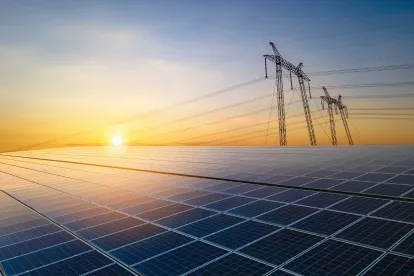House Republicans Aim to Advance Major Energy Package
House Republicans have started the process to advance a significant energy package in 2023 and held hearings on multiple measures in late February, with the goal of passing a combined package by late March. Two subcommittees of the House Energy and Commerce Committee met to discuss 16 bills focused on permitting reform, critical minerals, repeal of the natural gas tax, hydraulic fracturing, cross-border electricity transmission, and more. Read about the various bills HERE and HERE. The House Transportation & Infrastructure Committee approved a joint resolution to overturn the Biden administration’s new Waters of the United States (WOTUS) rule, a bill to promote the development of energy infrastructure and ensure water quality under Section 401 of the Clean Water Act, a package of General Services Administration (GSA) resolutions, and several other measures. The House Committee on Natural Resources held a full committee hearing on a discussion draft of the Building United States Infrastructure through Limited Delays and Efficient Reviews (BUILDER) Act, which would update NEPA statutes, while the Subcommittee on Energy and Mineral Resources held a legislative hearing on a discussion draft of the Transparency and Production of American Energy (TAP American Energy) Act and the Permitting for Mining Needs Act.
Energy Secretary at US-UK Strategic Energy Dialogue
On February 28, Secretary of Energy Granholm co-chaired the third meeting of the US-UK Strategic Energy Dialogue (SED) in London, United Kingdom. A number of issues were discussed, including energy security, policy and financing levers to facilitate the advancement of clean energy technologies, multilateral energy initiatives leadership, and continued US-UK engagement through working-level site visits.
ARPA-E Funding for Grid Reliability and Resiliency
Through the Advanced Research Projects Agency-Energy, the Department of Energy will provide $48 million in funding to support a new program focused on developing power grid technologies that improve control and protection of the domestic power grid. The “Unlocking Lasting Transformative Resiliency Advances by Faster Actuation of Power Semiconductor Technologies” (ULTRAFAST)” program will support the development of faster, more capable power electronics for enhanced resiliency, reliability, and control of power flow at all grid interfaces. Successful ULTRAFAST project teams will develop device concepts that target 1) Semiconductor material, device, and/or power module level advances to enable faster switching and/or triggering at higher current and voltage levels; 2) improved electromagnetic interference immunity; and 3) complementary sensing, packaging, and thermal management technology. Concept papers are due by March 23, 2023, with the deadline for full applications to be determined.
Bipartisan Infrastructure Law & Inflation Reduction Act Opportunities
In February, DOE announced a number of opportunities, including:
-
Carbon Capture Large-Scale Pilots (Funding Opportunity Announcement) to test novel technologies at intermediate scale and under relevant conditions in both the power and industrial sector to 1) de-risk transformational carbon capture technologies and address community concerns through meaningful engagement and robust analysis of impacts, risks, and benefits such as emissions, water usage, and jobs; and 2) catalyze significant follow-on investments from the private sector for first-of-a-kind commercial-scale demonstrations on carbon emission sources across the power and industrial sectors. Concept papers are due by April 5, 2023 and full applications by June 21, 2023.
-
Carbon Capture Demonstrations Program (Funding Opportunity Announcement) for transformational domestic, commercial-scale, integrated CCS demonstration projects designed to further advance the development, deployment, and commercialization of technologies to capture, transport (if required), and store CO2 emissions. This FOA makes available up to $1.7 billion for approximately six projects at up to a 50% federal cost share. Letters of intent are due by March 28, 2023 and full applications by May 23, 2023.
-
Advanced Energy Manufacturing and Recycling Grants (Funding Opportunity Announcement) to award financial assistance to small- and medium-sized manufacturers in energy communities to 1) establish new facilities or 2) re-equip or expand existing facilities for the manufacturing or recycling of advanced energy property. This first FOA will provide approximately $350 million in awards with a focus on projects with high supply chain impacts and strong community benefits plans. Concept papers are due by March 14, 2023 and full applications by June 8, 2023.
-
Enhanced Geothermal Systems Pilot Demonstrations (Funding Opportunity Announcement) announcing up to $74 million to support enhanced geothermal systems (EGS) pilot demonstration projects called for in the Bipartisan Infrastructure Law, which authorizes DOE to support up to seven competitively selected pilot projects that collectively demonstrate EGS in different geologic settings, using a variety of development techniques and well orientations. First-round letters of intent are due by March 8, 2023 with full applications due by June 16, 2023.
-
Energy Improvements in Rural or Remote Areas (ERA) Program (Funding Opportunity Announcement) for $1 billion for energy improvements in rural or remote areas. The funding will provide financial investment, technical assistance, and other resources to advance clean energy demonstrations and energy solutions that are replicable and scalable. ERA aims to fund clean energy projects with three specific goals: 1) deliver measurable benefits to energy customers in rural or remote areas by funding replicable energy projects that lower energy costs, improve energy access and resilience, and/or reduce environmental harm; 2) demonstrate new rural or remote energy system models using climate-resilient technologies, business structures that promote economic resilience, new financing mechanisms, and/or new community engagement best practices; and 3) build clean energy knowledge, capacity, and self-reliance in rural America. Concept papers are due by April 14, 2023, and full applications are due by June 28, 2023.




 />i
/>i

